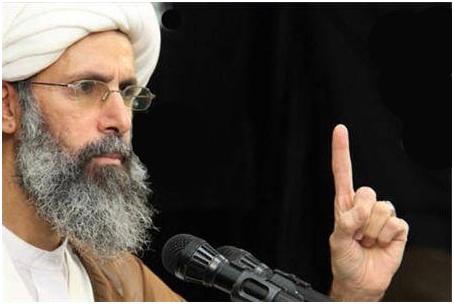
Both the British and American response to Saudi’s executions have been criticised for being somewhat muted. However, the US response has been comparitvely damning compared to the UK’s flaccid statement.Tobias Ellwood, Britain’s Minister for the Middle East said the following:
I am deeply disturbed by the escalation in tensions in the last 24 hours in the Middle East.
The UK is firmly opposed to the death penalty. We have stressed this to the Saudi authorities and also expressed our disappointment at the mass executions.
We have discussed with the authorities in Riyadh, and expect that Ali Al-Nimr and others who were convicted as juveniles will not be executed. The UK will continue to raise these cases with the Saudi authorities.
We are deeply concerned to hear of the attack yesterday on the Saudi Embassy in Tehran. It is essential that diplomatic missions are properly protected and respected.
There are those who will wish to exploit the situation and raise sectarian tensions higher. This would be against the wishes of the vast majority of those in the region. I urge all parties in the region to show restraint and responsibility.
Marginalisation of Al-Nimr’s Death
It is crucial to note that Mr. Ellwood refrained from mentioning what has been the most provactive move by the Saudis, the execution of the Shia cleric Shaykh Nimr Al-Nimr. This seems particularly absurd given the fact Ellwood explicitly condems the attack on the Saudi Embassy in Tehran, which was a result of the execution of Al-Nimr. The UK’s response marginalises what is perceived as a deliberate act of Saudi aggression. Even the US noted that they were concerned that the execution of Nimr risked exacerbating Sectarian tensions in the region.
Ellwood’s last paragraph seems to be a shot at those who are reacting to the execution of Al-Nimr and, for example, attacking Saudi property or protesting in Bahrain. However, it does not explicitly note that the Saudi decision cannot have been undertaken without full knowledge that it would escalate regional tension. I would ask Mr. Ellwood whether he condemns the execution of Al-Nimr as an exploitation of the existing tensions in the region.
Deflected Issues
As predicted, the UK have focused on the broader issue of the death penalty. While the death penalty is an important problem in Saudi, the key issue here is the Saudi justice system, and the fact that its lack of transparency is leading people to lose their lives. They have also chosen to focus on Ali Al-Nimr, and the fact he is a juvenile. Why intercede on this issue but not that of Shaykh Nimr Al-Nimr. Also, have the UK asked why 47 people were executed in one go? At least the Americans recognised that Saudi needed ‘ensure fair and transparent judicial proceedings’.
It is no secret that Saudi and UK enjoy a lucrative trade relationship, especially for the UK arms industry. Recently, Cameron cumbersomely avoided John Snow’s questions on why the UK, given Saudi’s historic human rights abuses, conspired to back them joining the UN Human Rights Council. However, the UK’s unwillingness to criticise Saudi, at least publicly, is a sad indictment of UK’s foreign policy. However, this should come as no surprise, especially now the Permanent Secretary to the Foreign Office has essentially said that trade trumps human rights in British foreign policy.
Leave a comment